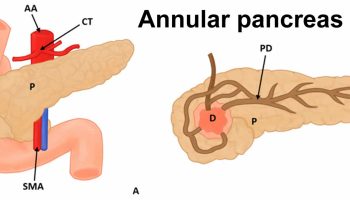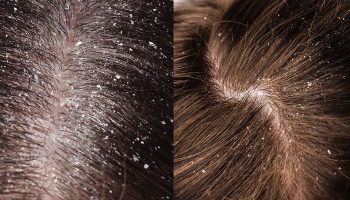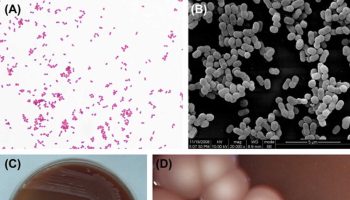Contents
What is halitosis
Halitosis means bad breath. There are many reasons why you might have halitosis. You can get halitosis if you don’t brush and floss regularly. Bacteria that build up in your mouth and between your teeth produce the bad odor. Other problems in your mouth, such as gum disease (periodontal disease), dry mouth, or cavities, may also cause halitosis. Sinusitis or problems with your nose may be to blame. You can also have halitosis if you eat some foods, like raw onions, garlic, or cabbage. And of course smoking causes its own bad smell. Some diseases and medicines can cause a specific breath odor.
Having good dental habits, like brushing and flossing regularly, help fight halitosis. Mouthwashes, mints or chewing gum may make your breath fresher. If you have a disease that causes halitosis, treating the disease may help give you fresher breath.
If you can’t get rid of bad breath on your own, see your family doctor or dentist to find out if a more serious problem is causing it. Halitosis may be a sign of a health problem. Sinus infections, chronic lung infections, liver or kidney diseases, and diabetes are some health conditions that may cause bad breath.
Some disorders will produce distinct breath odors. Some examples are:
- A fruity odor to the breath is a sign of ketoacidosis, which may occur in diabetes. It is a potentially life-threatening condition.
- Breath that smells like feces can occur with prolonged vomiting, especially when there is a bowel obstruction. It may also occur temporarily if a person has a tube placed through the nose or mouth to drain their stomach.
- The breath may have an ammonia-like odor (also described as urine-like or “fishy”) in people with chronic kidney failure.
There are lots of myths about taking care of bad breath. Here are three things you may have heard about bad breath that are not true:
Myth #1: Mouthwash will make bad breath go away.
- Mouthwash only gets rid of bad breath temporarily. If you do use mouthwash, look for an antiseptic (kills the germs that cause bad breath) and plaque-reducing one with a seal from the American Dental Association (ADA). When you’re deciding which dental products to toss into your shopping cart, it’s always a good idea to look for those that are accepted by the ADA. Also, ask your dentist for recommendations.
Myth #2: As long as you brush your teeth, you shouldn’t have bad breath.
- The truth is that most people only brush their teeth for 30 to 45 seconds, which just doesn’t cut it. To sufficiently clean all the surfaces of your teeth, you should brush for at least 2 minutes at least twice a day. Remember to brush your tongue, too — bacteria love to hang out there. It’s equally important to floss because brushing alone won’t remove harmful plaque and food particles that become stuck between your teeth and gums.
Myth #3: If you breathe into your hand, you’ll know when you have bad breath.
- Wrong! When you breathe, you don’t use your throat the same way you do when you talk. When you talk, you tend to bring out the odors from the back of your mouth (where bad breath originates), which simply breathing doesn’t do. Also, because we tend to get used to our own smells, it’s hard for a person to tell if he or she has bad breath.
If you’re concerned about bad breath, make sure you’re taking care of your teeth and mouth properly. Some sugar-free gums and mints can temporarily mask odors, too.
If you brush and floss properly and visit your dentist for regular cleanings, but your bad breath persists, you may have a medical problem like sinusitis or gum disease. Call your doctor or dentist if you suspect a problem. They can figure out if something else is behind your bad breath and help you take care of it.
Contact your doctor if:
- Breath odor does not go away and there is not an obvious cause (such as smoking or eating foods that cause the odor).
- You have breath odor and signs of a respiratory infection, such as fever, cough, or face pain with discharge from your nose.
See a dentist if you have:
- bad breath that does not go away after treating it yourself for a few weeks
- painful, bleeding or swollen gums
- toothache or wobbly adult teeth
- problems with your dentures
Does halitosis come from other sources than the mouth?
Halitosis also may occur in people who have a medical infection, diabetes, kidney failure or a liver malfunction. Xerostomia (dry mouth) and tobacco also contribute to this problem. Cancer patients who undergo radiation therapy may experience dry mouth. Even stress, dieting, snoring, age and hormonal changes can have an effect on your breath. An odor that comes from the back of your tongue may indicate postnasal drip. This is where mucus secretion, which comes from the nose and moves down your throat, gets stuck on the tongue and causes an odor.
Why is saliva so important in the fight against halitosis?
Saliva is the key ingredient in your mouth that helps keep the odor under control because it helps wash away food particles and bacteria, the primary cause of bad breath. When you sleep, however, salivary glands slow down the production of saliva, allowing the bacteria to grow inside the mouth. To alleviate “morning mouth,” brush your teeth and eat a morning meal. Morning mouth also is associated with hunger or fasting. Those who skip breakfast, beware, because the odor may reappear even if you’ve brushed your teeth.
Do certain foods cause halitosis?
Very spicy foods, such as onions and garlic, and coffee may be detected on a person’s breath for up to 72 hours after digestion. Onions, for example, are absorbed by the stomach, and the odor is then excreted through the lungs. Studies even have shown that garlic rubbed on the soles of the feet can show up on the breath.
How do I control halitosis?
It is important to practice good oral hygiene, such as brushing and flossing your teeth at least twice a day. Proper brushing, including brushing the tongue, cheeks and the roof of the mouth, will remove bacteria and food particles. Flossing removes accumulated bacteria, plaque and food that may be trapped between teeth. To alleviate odors, clean your tongue with your toothbrush or a tongue scraper, a plastic tool that scrapes away bacteria that builds on the tongue. Chewing sugar-free gum also may help control odor. If you have dentures or a removable appliance, such as a retainer or mouthguard, clean the appliance thoroughly before placing it back in your mouth. Before you use mouthrinses, deodorizing sprays or tablets, talk with your dentist, because these products only mask the odor temporarily and some products work better than others.
Tips for preventing halitosis
- Brush your teeth (and tongue!) for at least two minutes twice a day with fluoride toothpaste, especially after meals and at bedtime.
- Ask your dentist how to floss correctly. Flossing can remove tiny bits of food that can rot and smell bad.
- Replace your toothbrush every three to four months.
- Visit your dentist twice a year. He or she will help keep your teeth and your mouth healthy.
- Eat smart. Avoid foods and drinks that can leave behind strong smells, like cabbage, garlic, raw onions, and coffee. If you’re trying to lose weight, remember that not eating enough or cutting out certain foods (such as carbohydrates) can cause halitosis.
- Don’t smoke! You’ll smell sweeter — and be lots healthier.
- Drink enough fluids. Drinking helps wash away tiny bits of food and bacteria, which can smell bad.
If your bad breath doesn’t go away, be sure to talk to your dentist, doctor, or nurse. It could be a sign of a medical problem, such as a sinus infection or gum disease. You may feel a little funny talking about bad breath, but it’s very common and you can get help.
Tips for keeping your mouth healthy
A lot of the tips for keeping your mouth healthy are the same as the tips for stopping halitosis, such as brushing and flossing. Below are some more tips for good oral hygiene, which is just a fancy way to say taking care of your teeth and mouth. Do you feel like they are a pain? Well, they are a lot less of a pain than the dentist’s drill!
- Eat smart. Avoid sugary foods and drinks. This helps prevent damage to your teeth and is great for your overall health.
- Brush after sweets. If you eat or drink sugary stuff, try to brush right after. If you can’t brush, at least rinse your mouth with water.
- Definitely don’t smoke. Smoking doesn’t just smell bad and stain your teeth. It also can increase your risk of gum disease and tooth decay.
What causes halitosis
Most halitosis comes from something in your mouth. Food sticks between your teeth, around the gums and on your tongue. If you don’t brush and floss your teeth every day, this food can rot. The rotten bits of food cause a bad smell in your mouth. Rotten food also helps bacteria grow in your mouth. These bacteria can cause gum disease (also called gingivitis). Gingivitis also causes bad breath.
The things you eat and drink can also affect your breath. Common examples of foods and beverages that may cause bad breath include onions, garlic, cheese, pastrami, certain spices, orange juice and soda. Once these foods are digested, their oils are absorbed into your bloodstream and carried into the lungs. The odor is given off in your breath until all of the food is out of your body.
Halitosis causes may include:
- Food. The breakdown of food particles in and around your teeth can increase bacteria and cause a foul odor. Eating certain foods, such as onions, garlic and spices, also can cause bad breath. After you digest these foods, they enter your bloodstream, are carried to your lungs and affect your breath.
- Tobacco products. Smoking causes its own unpleasant mouth odor. Smokers and oral tobacco users are also more likely to have gum disease, another source of bad breath.
- Poor dental hygiene. If you don’t brush and floss daily, food particles remain in your mouth, causing bad breath. A colorless, sticky film of bacteria (plaque) forms on your teeth. If not brushed away, plaque can irritate your gums and eventually form plaque-filled pockets between your teeth and gums (periodontitis). Your tongue also can trap bacteria that produce odors. Dentures that aren’t cleaned regularly or don’t fit properly can harbor odor-causing bacteria and food particles.
- Dry mouth. Saliva helps cleanse your mouth, removing particles that cause bad odors. A condition called dry mouth or xerostomia (zeer–o-STOE-me-uh) can contribute to bad breath because production of saliva is decreased. Dry mouth naturally occurs during sleep, leading to “morning breath,” and it worsens if you sleep with your mouth open. Chronic dry mouth can be caused by a problem with your salivary glands and some diseases.
- Medications. Some medications can indirectly produce bad breath by contributing to dry mouth. Others can be broken down in the body to release chemicals that can be carried on your breath.
- Infections in your mouth. Bad breath can be caused by surgical wounds after oral surgery, such as tooth removal, or as a result of tooth decay, gum disease or mouth sores.
- Other mouth, nose and throat conditions. Bad breath can occasionally stem from small stones that form in the tonsils and are covered with bacteria that produce odor. Infections or chronic inflammation in the nose, sinuses or throat, which can contribute to postnasal drip, also can cause bad breath.
- Other causes. Diseases, such as some cancers, and conditions such as metabolic disorders, can cause a distinctive breath odor as a result of chemicals they produce. Chronic reflux of stomach acids (gastroesophageal reflux disease, or GERD) can be associated with bad breath. Bad breath in young children can be caused by a foreign body, such as a piece of food, lodged in a nostril.
Halitosis may be caused by:
- Abscessed tooth
- Gum surgery
- Alcoholism
- Cavities
- Dentures
- Eating certain foods, such as cabbage, garlic, or raw onions
- Coffee and poorly pH-balanced diet
- Object stuck in the nose (usually happens in kids); often a white, yellow, or bloody discharge from one nostril
- Gum disease (gingivitis, gingivostomatitis, acute necrotizing ulcerative gingivitis [ANUG])
- Impacted tooth
- Poor dental hygiene
- Tonsils with deep crypts and sulfur granules
- Sinus infection
- Throat infection
- Tobacco smoking
- Vitamin supplements (especially in large doses)
- Some medicines, including insulin shots, triamterene, and paraldehyde
Some diseases that may cause breath odor are:
- Acute necrotizing ulcerative gingivitis (ANUG)
- Acute necrotizing ulcerative mucositis
- Gastroesophageal reflux disease (GERD)
- Acute renal failure
- Bowel obstruction
- Bronchiectasis
- Chronic kidney failure
- Esophageal cancer
- Gastric carcinoma
- Gastrojejunocolic fistula
- Hepatic encephalopathy
- Diabetic ketoacidosis
- Lung infection or abscess
- Ozena, or atrophic rhinitis
- Periodontal disease
- Pharyngitis
- Zenker diverticulum
Halitosis symptoms
Bad breath odors vary, depending on the source or the underlying cause. Some people worry too much about their breath even though they have little or no mouth odor, while others have bad breath and don’t know it. Because it’s difficult to assess how your own breath smells, ask a close friend or relative to confirm your bad-breath questions.
Many people wake up with smelly breath, often called morning breath. But you may also have bad breath on and off throughout the day and not even know it. Here are some symptoms you may have that are associated with halitosis:
- Dry mouth.
- Plaque around your teeth near the gumline.
- A white coating on your tongue.
- Post nasal drip of the feeling of sinuses draining down your throat.
- A bad taste in your mouth, especially if it has a metallic taste.
How is halitosis diagnosed?
If you believe you may have halitosis, you should ask your doctor or dentist. He or she may be able to diagnose you based on odor alone. He or she may also ask you some lifestyle questions about how often you brush your teeth or if you floss your teeth. Your doctor or dentist may also ask about the medicines you are taking. If your doctor does not believe your bad breath is related to an underlying medical condition, he or she may refer you to a dentist for evaluation.
Your doctor will take a medical history and perform a physical exam.
You may be asked the following medical history questions:
- Is there a specific odor (such as fish, ammonia, fruit, feces, or alcohol)?
- Have you recently eaten a spicy meal, garlic, cabbage, or other “odorous” food?
- Do you take vitamin supplements?
- Do you smoke?
- What home care and oral hygiene measures have you tried? How effective are they?
- Have you had a recent sore throat, sinus infection, tooth abscess, or other illness?
- What other symptoms do you have?
The physical exam will include a thorough inspection of your mouth and nose. A throat culture may be taken if you have a sore throat or mouth sores.
In rare cases, tests that may be performed include:
- Blood tests to screen for diabetes or kidney failure
- Endoscopy
- X-ray of the abdomen
- X-ray of the chest
Antibiotics may be prescribed for some conditions. For an object in the nose, your doctor will use an instrument to remove it.
Halitosis treatment
Halitosis treatment mostly includes the things listed above and below to prevent bad breath. But your doctor or dentist may also offer you a prescription mouthwash to help treat gum disease.
For causes related to oral health, your dentist will work with you to help you better control that condition. Dental measures may include:
- Mouth rinses and toothpastes. If your bad breath is due to a buildup of bacteria (plaque) on your teeth, your dentist may recommend a mouth rinse that kills the bacteria. Your dentist may also recommend a toothpaste that contains an antibacterial agent to kill the bacteria that cause plaque buildup.
- Treatment of dental disease. If you have gum disease, you may be referred to a gum specialist (periodontist). Gum disease can cause gums to pull away from your teeth, leaving deep pockets that fill with odor-causing bacteria. Sometimes only professional cleaning removes these bacteria. Your dentist might also recommend replacing faulty tooth restorations, a breeding ground for bacteria.
There are many things you can do on your own to prevent halitosis. These include:
- Brush your teeth at least 2 times every day, using a fluoride toothpaste. Be sure to brush along the gumline, as well as all tooth surfaces. Each time you brush your teeth, use your toothbrush to clean the surface of your tongue.
- Brush your teeth after you eat. Keep a toothbrush at work to use after eating. Brush using a fluoride-containing toothpaste at least twice a day, especially after meals. Toothpaste with antibacterial properties has been shown to reduce bad breath odors.
- Floss your teeth at least twice a day. Proper flossing removes food particles and plaque from between your teeth, helping to control bad breath.
- Brush your tongue. Your tongue harbors bacteria, so carefully brushing it may reduce odors. People who have a coated tongue from a significant overgrowth of bacteria (from smoking or dry mouth, for example) may benefit from using a tongue scraper. Or use a toothbrush that has a built-in tongue cleaner.
- Clean dentures or dental appliances. If you wear a bridge or a denture, clean it thoroughly at least once a day or as directed by your dentist. If you have a dental retainer or mouth guard, clean it each time before you put it in your mouth. Your dentist can recommend the best cleaning product.
- Avoid dry mouth. To keep your mouth moist, avoid tobacco and drink plenty of water — not coffee, soft drinks or alcohol, which can lead to a drier mouth. Chew sugar-free gum or suck on sugar-free mints to stimulate saliva. For chronic dry mouth, your dentist or physician may prescribe an artificial saliva preparation or an oral medication that stimulates the flow of saliva.
- Eat more fruits and vegetables every day. Eat less meat.
- Avoid foods that cause you to have bad breath. Also try to avoid alcoholic beverages, which often cause bad breath.
- Avoid using tobacco products. Any kind of tobacco can cause halitosis.
- Most mouthwashes do not have a long-lasting effect on bad breath. If you use a mouthwash, swish it around in your mouth for 30 seconds before spitting it out.
- If you wear removable dentures, take them out at night. Brush the dentures and soak them overnight in a disinfecting solution. Removable braces and retainers should also be cleaned. Follow the directions of your dentist.
- See your dentist twice a year to have your teeth cleaned.





